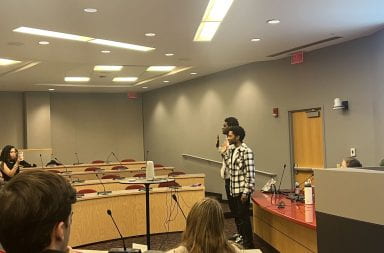Jim Tressel didn’t deserve to go out this way.
His resignation officially signals that the responsibility for the football program’s various NCAA violations falls on one man.
Tressel even said as much in his resignation letter to athletic director Gene Smith — he is making “this decision for the greater good of our school.”
Though they originally came out in support of Tressel, Smith and university President E. Gordon Gee have made it clear — through months of silence since — that it was in the best interest of the school for him to resign.
Firing him would have been a public relations disaster. Tressel never seemed willing to step down until months of speculation — and maybe some internal pressure — apparently wore on him.
Though he was the head football coach, he is not the only one embroiled in this controversy.
While Smith issued public statements gently scolding the compliance and athletic departments’ role in educating players about NCAA rules, they remain unscathed while Tressel takes the fall.
The problem of breaking NCAA rules isn’t just with Tressel, a group of players or even within this university. It’s a systemic issue, occurring at every institution.
People question Tressel’s ethics in his ignorance of inevitable NCAA violations back in April, after learning about them through former walk-on and Columbus lawyer, Christopher Cicero.
In the world of college athletics, which operates without any real moral standards anyhow, are Tressel’s actions really that despicable?
In the aftermath of his actions, he should be commended for the way he received the brunt of the backlash instead of running away to an undeserved multimillion-dollar deal in the NFL, and leaving someone else to clean up the pieces like Pete Carroll did with USC.
It’s sad to see a man with Tressel’s principles — true-to-life principles, not an ethical code judged by flimsy rules by which the NCAA governs — have to step down in such an ungraceful fashion.
Tressel has won 106 games, seven Big Ten titles, nine games against Michigan and the program’s first national championship since 1970. His departure merits a lot more fanfare.
More importantly than what happened on the field, was how he molded individuals. In a blog post from Saturday, linebacker Tyler Moeller said Tressel is a “great man that gives back to the world 24/7 and helps young kids like me grow into men; even the ones that everyone had already given up on like Ray Small.”
Moeller didn’t even mention former running back Maurice Clarett, who, like Small, went to the media to trash the program after a disgraceful exit.
Clarett, who ended up serving about 3 1/2 years in jail, stayed in constant contact with Tressel, who worked with Clarett to turn his life around — a testament to the true character of the embattled former coach.
The success on the field, and the character he displayed when it mattered most off it, is Tressel’s enduring legacy.
When he chose to hang up the vest, it didn’t deserve to be tattered like this.


